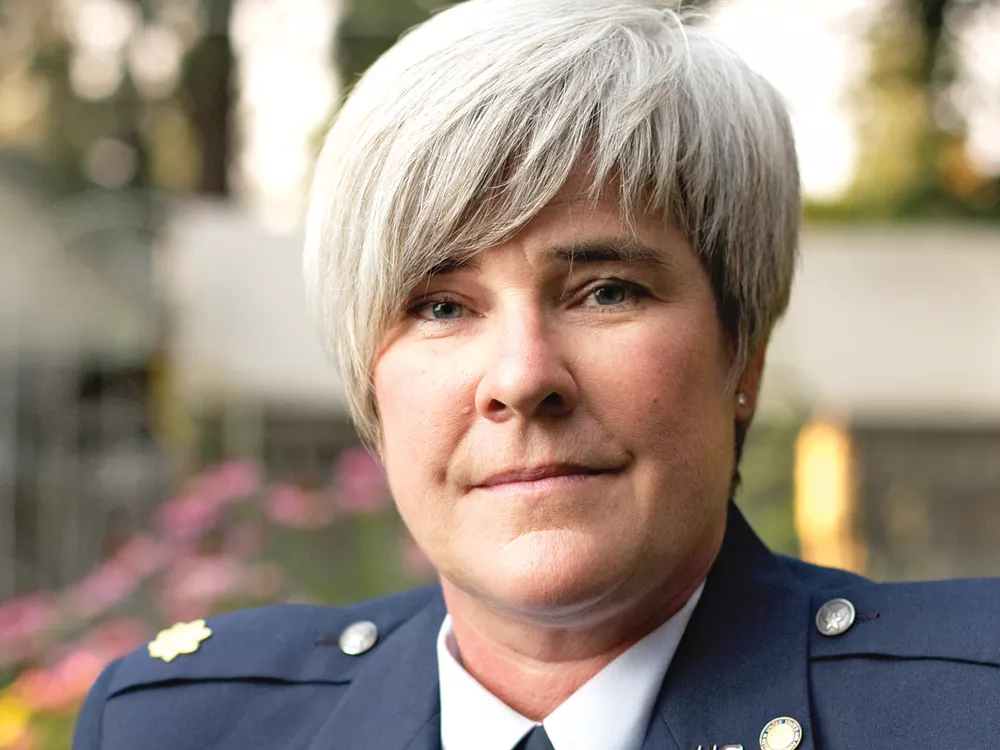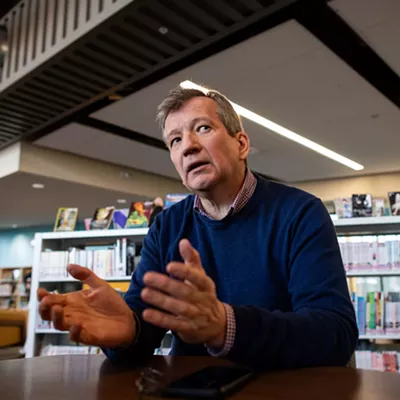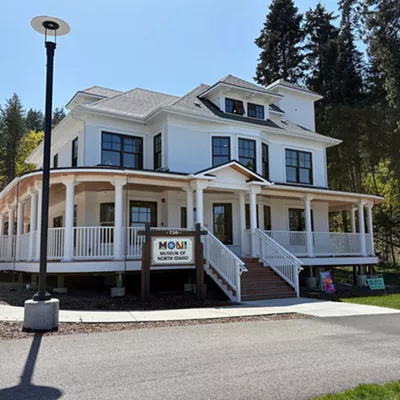She had served for 18 years. Her record was exemplary — a year earlier she earned an Air Force commendation medal for saving someone’s life. So when, in July of 2004, Margaret Witt, a reserve flight-nurse from Spokane, was escorted to the commander’s conference room to speak with an investigator, she was still smiling. It had to be a problem with someone else.
It wasn’t. She was being questioned about an email message sent to the military officials by her female partner’s ex-husband, a message that could shoot down Witt’s entire career. In 2003, the email revealed, Witt had an affair with the man’s wife before their divorce.
The Air Force didn’t care about allegations of adultery — they cared that she was a lesbian.
“I couldn’t breathe. I was shocked,” Witt says. “I was devastated.”
And soon, she was asked to gather her things and leave the base, while they investigated her for discharge.
About 14,000 service members, like Witt, have been kicked out of the military through a policy known colloquially as Don’t Ask, Don’t Tell (DADT). In 1993, President Bill Clinton, intending to repeal a longstanding ban on gays in the military, settled for a compromise: While openly gay service members were still banned, the government wouldn’t ask about sexuality.
But thousands were still booted. The Government Accountability Office estimated the policy cost nearly $95 million to replace discharged service members, some of whom spoke crucial languages like Arabic or Farsi. But after nearly a decade of war, opposition to gays in the military — and the number of discharges — fell substantially. Legal cases against the law piled up. Last year Congress voted to move toward eliminating it.
Now, on Sept. 20, DADT ends. Military men and women will have the unprecedented option to say, “I’m gay,” without automatically ending their careers. For gays in the military, it’s been a long journey to get to this point — and there’s a long journey yet to go.
"Nobody goes into the military thinking, ‘I’m going to join to challenge the big old law,’” Witt says.
But across four years in courtrooms, joining with the ACLU to fight for her job, that’s what happened.
Witt’s image had once been used for Air Force recruitment posters, but soon she became a poster child opposing DADT. It’s not hard to connect the dots between Witt’s battle and the law’s repeal. Her case resulted in a new rule — the military had to prove a discharge was necessary for the unit’s readiness — known as the “Witt standard.”
“It’s a little like being Miranda in the Miranda rights,” Witt says. “It’s a little weird.”
The Witt standard was cited by Judge Virginia Phillips in a landmark Ninth Circuit case that ruled DADT unconstitutional. And as Congress passed the repeal, Witt says Sen. Joe Liebermann, I-Conn., approached her and told her “it was my case that put a real face on the issue and pushed it through Congress.”
Witt doesn’t expect the repeal to be marked by long lines of gay service members enlisting or announcing their sexuality. She predicts that, after years of keeping their sexual orientation hidden, most still won’t talk about it publicly — in part out of habit and professionalism: Flying the rainbow flag comes second to the military’s honor code.
Witt
hopes for an increase in unit morale and cohesion. With gay service
members no longer suffering from a constant “can’t-sleep state of
paranoia,” Witt says, there will no longer be a need to keep others at a
distance. Less hiding, more trust, more unification.
This past year, across all branches of the military, starting at the highest levels of the Department of Defense, instructions for the policy change filtered down through the ranks. Starting in late spring, legal staff at Fairchild Air Force base taught commanders, and commanders taught their subordinates. In the ROTC, Sgt. Greg Jacobsen’s brigade commander taught him about the policy changes. Armed with an official DOD script, PowerPoints and pdfs, Jacobsen then taught 12 staffers and 102 ROTC members at Gonzaga University’s College Hall.
Questions popped up about how gay and straight cohabitation would be handled (up to commanders’ discretion) and whether same-sex partnerships would get spousal benefits (no). But mostly, Jacobsen says, there would be very few changes. After all, straight soldiers have served alongside gay soldiers — and known it — for years.
Still, some forecast disastrous consequences from the repeal. Organizations like the Family Research Council warn that sexual assault could increase if gays are allowed to serve openly, and worry that traditional religious conservatives who make up much of the armed services would refuse to enlist. Sen. John McCain, R-Ariz., a member of the Armed Services Committee, has said he’s had thousands of military members tell him that repealing the law will hurt unit cohesion, harm battle effectiveness and put troops in danger.
Similarly, Congresswoman Cathy McMorris Rodgers, R-Wash., who positions herself as a great supporter of Fairchild Air Force Base, voted against repeal, citing concerns of military leaders Robert Gates and Colin Powell.
Yet, attitudes have shifted. Both Powell and Gates changed their minds and now support repeal. Surveys in Military Times reported a 12 percentage point drop in service member support for DADT from 2003 to 2010. Among Gonzaga ROTC students — the future of the military — Jacobsen says support for the repeal is essentially unanimous.
“I think our younger officers coming in are much more accepting of this new policy,” Jacobsen says. “Some of the older ones are more entrenched in their views.”
Meanwhile, restrictions on gay marriage continue to constrain gay and lesbian partners. Even though Washington state law treats same-sex domestic partnerships as equivalent to marriage, the Defense of Marriage Act overrides that law, preventing it from applying to the military.
After eight years, Kristy Furley, a former staff sergeant at Fairchild, left the service in 2009 to be with her partner. Part of the reason: The military wouldn’t treat her same-sex partner like they would a spouse. They still won’t.
“Our partners are still not going to be able to transfer with us, they’re not going to receive benefits,” Furley says. She sees the repeal as a huge step, but not the final step.
“We’re still treated as second-class citizens,” Witt says. Ten days after the repeal is official, Witt can submit to retire from the military with full benefits. She plans to fly to D.C. — and maybe New York — to celebrate the end of DADT. Then she’ll return to her home near Manito Park on Spokane’s South Hill.
In
the months ahead, she’ll co-author nursing textbooks, finish her
doctorate and continue to be with her partner of eight years, enjoying
the relationship that catalyzed this journey in the first place.



























